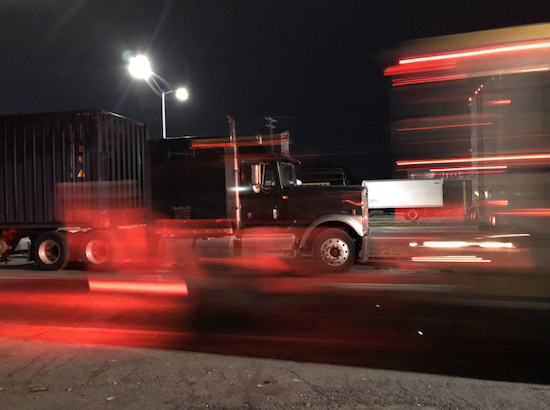Where the trucks have no home: A Brooklyn battle for parking space

To describe the Foster Avenue frontage road between East 83rd and East 87th streets as unremarkable is generous. On one side, imposing brick warehouse walls span entire blocks. On the other, a steady flow of traffic zips by on northern Canarsie’s main east-west thoroughfare. Litter and fallen leaves mingle in untended dunes, spilling over from the gutter onto the sidewalk. At night, streetlights cast a harsh glare that somehow makes everything feel even dimmer.
But this drab, fifth-of-a-mile stretch of roadway is the flashpoint in a rift between the Brooklyn Terminal Market, a neighborhood stalwart, and a group of truck drivers who say they’re getting short shrift from a newly accelerated policy of ticketing and towing tractor-trailers. While the roadside is designated a no-standing zone during overnight hours, it has long been used as a de facto parking lot for big rigs. But now, at the market’s request, it’s the target of an aggressive police crackdown on illegal commercial parking.

Brooklyn Boro
View MoreNew York City’s most populous borough, Brooklyn, is home to nearly 2.6 million residents. If Brooklyn were an independent city it would be the fourth largest city in the United States. While Brooklyn has become the epitome of ‘cool and hip’ in recent years, for those that were born here, raised families here and improved communities over the years, Brooklyn has never been ‘uncool’.